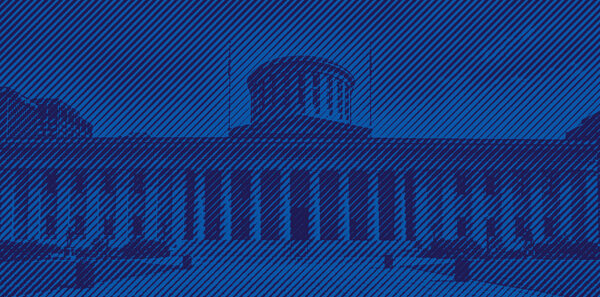Below is our Chief Lobbyist Gary Daniels' opponent testimony on Sub House Bill 680. This was delivered to the Senate Government Oversight & Reform Committee on July 21, 2020.
To Chairman Coley, Vice Chair Huffman, Ranking Member Craig, and members of the Senate Government Oversight & Reform Committee, thank you for this opportunity to present opponent testimony on Substitute House Bill 680.
Typically, when the ACLU of Ohio reviews a bill that impacts voting and elections, we start by viewing it through a simple lens before determining our position on it. That analysis amounts to - does the bill make it easier to vote or more difficult?
HB 680 purposely makes it more difficult for Ohioans and your constituents to vote and that is why we oppose it. Furthermore, it ignores various, crucial, and bipartisan recommendations relevant to the current and ongoing COVID-19 crisis.
In this crisis, with a) continuing infections and deaths, b) no vaccine, and c) asymptomatic spread, COVID-19 must be paramount in all our minds and plans when discussing at least the November 2020 election. What Ohio must avoid is a repeat of this year's primary elections or anything resembling that chaotic and confusing period.
Currently, HB 680 reduces the ability to vote in the following three ways:
Shortens window for absentee voting
HB 680 shortens by four days the deadline for absentee voters, including oversees military voters, to apply for a ballot. Some elections officials want this additional four days to allow for more processing time. But the plain fact remains it reduces the voting window for Ohioans during an unpredictable pandemic and for all future elections.
Forbids prepayment re: absentee ballot requests & ballots
HB 680 explicitly makes it illegal for the Secretary of State to prepay the return postage of absentee ballot requests and the ballots themselves for November 2020 and all future elections. At the very least , this provision should have some sort of emergency clause allowing for flexibility during a public health crisis, such as COVID-19. Particularly after what Ohio experienced during primary season when so many Ohioans were disenfranchised because of inadequate execution and the short window of time created between March 17 and April 28 for voting.
Restricts flexibility during emergencies
HB 680 inserts broad and vague language making it illegal for any "public official" to "cause an election to be conducted in other than in the time, place, and manner prescribed" by current law. This inflexibility and uncertain language ignores what may happen in cases of localized or widespread emergencies, natural disasters, or other unforeseen but no less impactful situations. Certainly, there is some language in current law relevant to emergency situations. But, again, in light of COVID-19 and the problems with the most recent primary, should we embark on a plan that ties hands in lieu of providing clear and specific guidance and regulation, via legislation, about government authority and elections in times of crisis?
Please think of elections as a Rube Goldberg-type machine where modifications or changes to one area or aspect affects the rest of the system in obvious and not so-obvious ways.
Currently, county boards of elections are making plans to consolidate polling places for the November 2020 election. Changing polling places with such short notice will surely lead to confusion among many Ohio voters. BOEs have also publicly expressed concern about the recruitment of poll workers to serve during a global pandemic. HB 680's answer to these and related concerns is not to further facilitate absentee voting but, instead, to discourage it. This is a remarkable development when Ohioans would benefit from additional, not less, help voting in November when COVID-19 will likely remain a serious concern.
Among the positive actions the ACLU of Ohio, among many others, advocates for and has contacted members of this committee regarding, is 1) provide prepaid postage and self-sealing return envelope for all absentee ballot requests and ballots; 2) accept all absentee ballots postmarked through Election Day; 3) refrain from discarding absentee ballots based on errors or technicalities; and 4) permit more than one early vote center and secure drop box per county. We believe these are among the changes needed to accommodate voting in November 2020.
Again, the ACLU of Ohio opposes HB 680 because it hurts where it should help. It restricts where flexibility is needed. It does nothing to recognize the impact of COVID-19 on November 2020 and future elections when Ohioans may need more assistance than ever to cast their ballot. As always, we are available and interested in working with others, including members of this committee and all legislators, to craft positive, effective solutions.
The ACLU of Ohio also urges this committee's rejection of Substitute House Bill 680 for all these aforementioned reasons and more.


